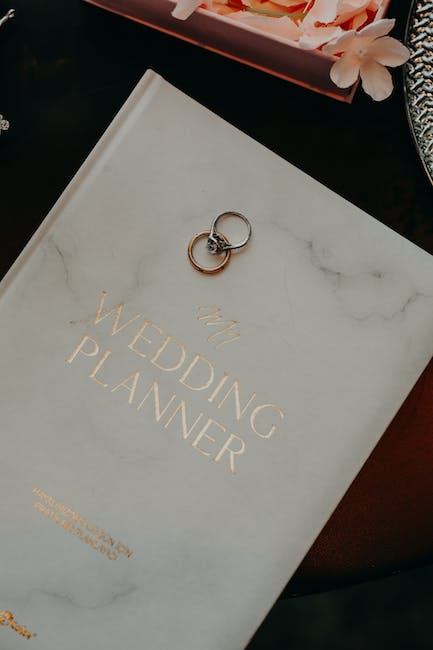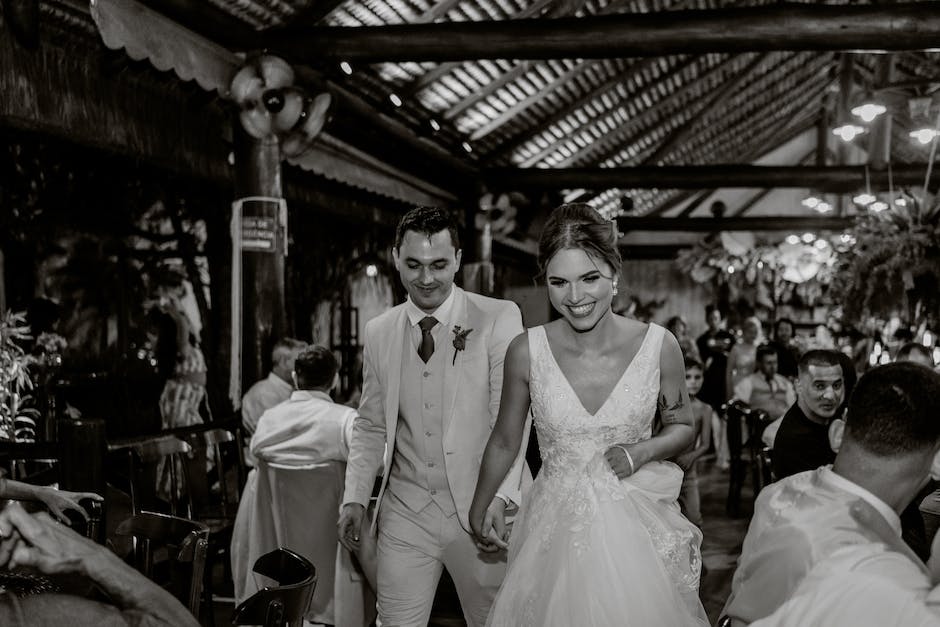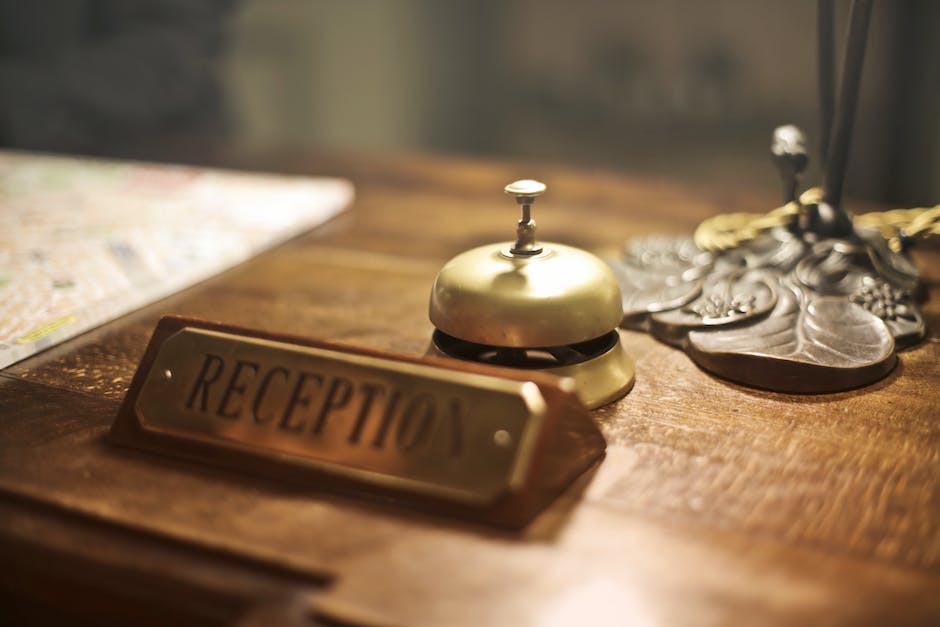Weddings are a day to celebrate love and commitment, but they can also be incredibly expensive affairs. With so many details to consider and pay for, it’s easy to get overwhelmed by the cost. However, there are plenty of ways to cut costs without sacrificing quality. Here are some tips to help you save money on your wedding day.
1. Plan Ahead

The key to saving money on a wedding is to start planning ahead of time. Give yourself plenty of time to shop around for vendors and find the best deals. When you rush and make last-minute decisions, you run the risk of overspending or not getting the quality you desire. Planning ahead can also help you be more strategic about your budget and ensure that you stay on track throughout the planning process.
Start by creating a budget and a timeline for your wedding. Factor in all the major expenses, such as the venue, catering, flowers, and attire. Be sure to leave some wiggle room for unexpected costs and prioritize the items that matter most to you. Utilize resources such as wedding planning books, checklists, and online tools to help you stay organized and on top of your wedding planning tasks.
Remember that planning a wedding is a marathon, not a sprint. Take breaks when necessary, and enlist the help of friends and family if you need it. By starting early and planning strategically, you can save money and still have the wedding of your dreams.
2. Opt for a Smaller Guest List

One of the most significant expenses of a wedding is the guest list. More guests mean more food, a larger venue, and more invitations, which can quickly add up. Consider limiting your guest list to close family and friends or having a smaller ceremony with a larger party later. Choosing a smaller guest list can not only save you money, but it can also create a more intimate ceremony and reception.
Keep in mind that it’s not necessary to invite everyone you’ve ever met to your wedding. Be selective and focus on the people who are most important to you. You can also consider having a destination wedding or eloping to further cut costs.
3. DIY Where You Can

Another way to save money on your wedding is to do some of the work yourself. DIY projects can be a fun and creative way to add personal touches to your wedding while also cutting costs. Some popular DIY projects include creating decorations, designing and printing invitations, or making your own wedding favors.
Enlist the help of friends and family members who have skills in areas such as crafting, graphic design, or baking. DIY projects can be a great way to get these people involved in your wedding planning process and make your wedding more meaningful to you.
However, be careful not to take on too much. DIY projects can be time-consuming and stressful, and you don’t want to end up feeling overwhelmed on your special day. Focus on projects that are within your skill level and timeframe, and consider hiring professionals for larger tasks such as photography or catering.
4. Consider an Off-Peak Date and Time

The date and time you choose for your wedding can significantly impact your budget. Popular wedding dates and times are more expensive, so consider choosing an off-peak date or time to save money. This could mean having a weekday wedding, a morning ceremony, or a winter wedding, for example.
Off-peak dates and times may have lower venue and vendor costs, and they may also be easier to book. Keep in mind that some dates, such as holidays or peak wedding seasons, may have other drawbacks, such as higher travel costs for guests or weather issues. Be sure to do your research and choose a date and time that works best for you and your guests.
5. Rent Rather Than Buy

Wedding attire can be one of the costliest parts of a wedding budget. Rather than buying expensive dresses and tuxedos outright, consider renting them instead. This can save you hundreds of dollars and allow you to wear designer styles that you might not otherwise be able to afford.
Look for rental options at bridal shops, tuxedo rental stores, or online retailers. You can also consider purchasing dresses and tuxedos at second-hand stores or consignment shops, or borrowing them from friends and family members. Be sure to read reviews and check the quality of the items before making any decisions.
6. Choose a Non-Traditional Venue
Traditional wedding venues, such as hotels and banquet halls, can be expensive and may have strict rules and regulations. Consider choosing a unique location for your wedding, such as a park, museum, or rental home. These options can be more affordable, and they can also provide a more memorable experience for you and your guests.
Keep in mind that non-traditional venues may require more planning and preparation, such as renting tables and chairs or setting up lighting. You may also need to obtain permits or insurance, depending on the location. Be sure to do your research and work closely with the venue to ensure that all the details are taken care of.
7. Choose In-Season and Locally-Sourced Flowers
Flowers are a beautiful and essential part of a wedding, but they can also be expensive. Choosing flowers that are in season and locally-grown can save you a significant amount on your floral budget. Not only are these flowers more affordable, but they are also more likely to be fresh and high quality.
Work with a florist or do your research to find out which flowers are in season during the time of your wedding. You can also consider using non-floral decor, such as candles or greenery, to further cut costs.
8. Cut Back on Extras
While extras such as a limo rental, a live band, or a videographer can add excitement and glamour to your wedding, they can also quickly add up in cost. Consider cutting back on some of these traditional extras to save money.
For example, you might opt for a DJ instead of a live band, or you might skip the limo rental and have a friend drive you instead. Remember that these extras are not essential to the success of your wedding, and cutting back on them can allow you to focus on what truly matters to you.
9. Negotiate with Vendors
When it comes to your wedding vendors, don’t be afraid to negotiate to find the best price. Many vendors are willing to work with couples to find a price that works for their budget. Be upfront about your budget and preferences, and ask if they have any deals or discounts available.
You can also consider bundling services to save money. For example, you might ask your caterer if they can also provide the wedding cake or if a photographer can include an engagement photo session in their package. Be sure to read contracts carefully and ask plenty of questions before making any commitments.
10. Prioritize What Is Most Important to You
Remember that your wedding day is about you and your partner, and it’s essential to prioritize what matters most to you. This may mean splurging on a specific venue or photographer while cutting costs in other areas. Be honest with yourself about what is most important to you, and allocate your budget accordingly.
Keep in mind that there are plenty of ways to save money without sacrificing quality, and your wedding doesn’t have to break the bank to be beautiful and memorable. With a little creativity and planning, you can have the wedding of your dreams without the financial stress.







